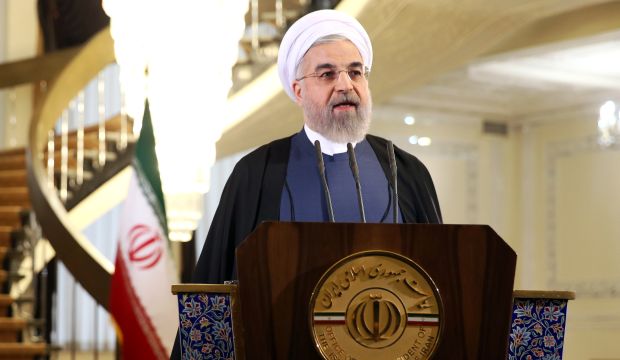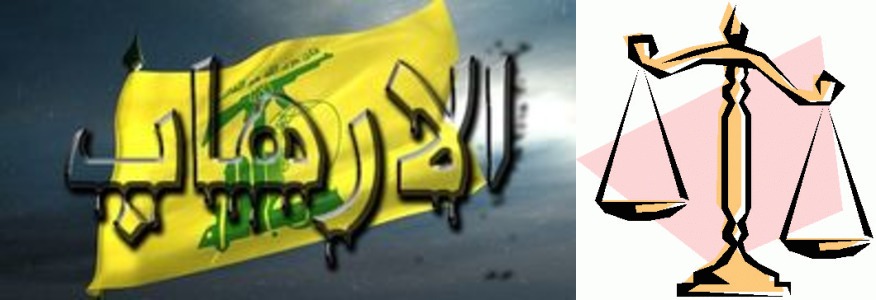Home تعليقات ومقالات مميزة سلمان الدوسري/أخيرًا.. إيران تعترف بتدخلاتها/Salman Aldossary/Iran finally admits to regional interference
Iran finally admits to regional interference
Salman Aldossary/Al Arabiya/Friday, 17 Apr, 2015
On January 23, 2013 Yemen authorities seized the Jihan 1, an Iranian ship loaded with huge quantities of heavy and sophisticated weaponry, off the coast of Aden while en route from Iran. Following the incident, an official statement from the Ministry of Interior in Sana’a said that the weapons’ shipment was intended for the Houthis. The incident provided strong evidence for the involvement of the Iranian regime in supporting the Houthi rebel group both politically and militarily. This left no room for doubt among Yemenis from across the political spectrum about the truth of Iran’s involvement in their country.
After years of deception, plotting and denial, Iran has finally revealed the reality of its policy without prevaricating. It has admitted to having links to several “groups” rather than one group in the region. Not only this, Tehran also said that it can place pressures on those groups to achieve its aims. Iran said it was ready to use its influence on all groups in Yemen and the region to reach a peace deal. So, Iran has finally admitted, in the words of its Foreign Minister Mohammad Javad Zarif, that it does have “influence” in the region and on “groups.” How can one understand the relationship between one state and the political parties and militias operating outside the framework of another state? After years of indirect dealings with its own clients, Iran now has clearly and frankly admitted to using proxies to extend its influence in the region, in flagrant breach of international laws in full view of the world.
What changed the Iranian stance, from denial to attempting to legitimize its illegal influence? It seems that Iran, following the defeat in Yemen, as well as opposition from a world that has united against its expansionist project, wants to play out in the open and send a message to regional countries that it is capable of reshuffling the cards and complicating the scene through its proxies. It may also be the case that Iran is yet to issue other messages through different means. This unprecedented, clear rhetoric, as well as its strenuous efforts to feed its hunger for power, indicate that the export of revolution has become the official policy of Iran and that Tehran is left with no option but to publicly reveal its cards and start bargaining with regional countries. Mr. Zarif’s confession about his country’s interference in the internal affairs of Arab countries is not a slip of the tongue as much as a new strategy to be carried out through its proxies in the entire region.
Only a few weeks ago Ali Akbar Velayati, an adviser to the Iranian Supreme Guide, said: “Iran’s influence extends from Lebanon to Yemen,” a statement that was quickly dismissed by the government as unrepresentative of the regime. Zarif has admitted that his country is violating international laws. I am not sure where the US, a superpower, stands on this. The US Department of State’s spokesman said on Thursday that Iran is threatening the security and stability of regional countries.
Iran suffers from an ethnic crisis, deteriorating living standards, isolation, international economic sanctions, as well as facing regional rivalry. Iran is depleting its wealth by manufacturing weapons to support the militias it operates in several Arab states. Tehran’s blunt declaration of infiltrating the Arabian Peninsula is a serious escalation that indicates Iran’s violation of international laws.
Iran’s expansionist policy in the region has been destroyed by Operation Decisive Storm which in turn is on course to eradicate Iran’s agents and proxies in Yemen.
أخيرًا.. إيران تعترف بتدخلاتها
سلمان الدوسري/الشرق الأوسط/17 نيسان/15
في السادس من فبراير (شباط) 2013 أوقفت السلطات اليمنية السفينة الإيرانية «جيهان 1» في مياه خليج عدن خلال قدومها من إيران. كانت السفينة الضخمة محملة بكميات كبيرة من الأسلحة الثقيلة والمتطورة، أعقب ذلك تصريح رسمي من مسؤول بوزارة الداخلية اليمنية، كاشفًا، بالأدلة والبراهين، أن تلك الأسلحة شحنت لإرسالها إلى الحوثيين. كان ذلك بمثابة الدليل الرسمي والحجة القوية القاطعة التي تثبت تورط النظام الإيراني رسميًا في دعم الحوثيين سياسيًا وعسكريًا. لم تترك تلك الحادثة أي مجال للشك لدى اليمنيين بكافة مشاربهم وأحزابهم في حقيقة التورط الإيراني في بلادهم.
وبعد سنوات من النفي والتضليل والمؤامرات والإنكار، أظهرت إيران حقيقة سياستها ولم تراوغ هذه المرة، اعترفت أن لديها ارتباطات مع «جماعات» بالمنطقة، وليس جماعة واحدة، ليس هذا فحسب، بل قالت إنها تستطيع ممارسة الضغوط على هذه الجماعات لتحقيق ما تصبو إليه، وكشفت عن استعدادها «لاستخدام نفوذها على كل المجموعات في المنطقة واليمن للتوصل إلى اتفاق سلام». إذن أخيرًا أقرت وبملء فم وزير خارجيتها محمد جواد ظريف أن لها «نفوذًا» بالمنطقة وبـ«الجماعات». كيف يمكن فهم علاقة دولة بأحزاب وجماعات سياسية وميليشيات خارج إطار الدولة؟ إيران بعد أن كانت تتعاطى مع وكلائها بشكل غير مباشر وتتحاشى الاعتراف بأنهم جزء من استراتيجيتها للهيمنة على المنطقة، أعلنتها بكل وضوح وصراحة، فأي قوانين دولية وأعراف يكسرها النظام الإيراني على مرأى ومسمع من العالم؟!
ما الذي غير الموقف الإيراني من حالة الإنكار إلى حالة تشريع نفوذها غير القانوني؟ يبدو أن إيران ومع تجرعها الهزيمة في اليمن وتوحد العالم ضد مشروعها التوسعي، أرادت اللعب على المكشوف وإيصال رسالة لدول المنطقة بقدرتها على خلط الأوراق وتعقيد المشهد عن طريق وكلائها. وربما نحن في انتظار مزيد من الرسائل سترسلها إيران بوسائل متعددة، فالحديث بهذا الوضوح غير المسبوق والسعي الحثيث لإشباع جوعها للسلطة، هو اعتراف بأن سياسة تصدير الثورة تتعاطاها إيران الآن بطريقة رسمية، ولم يعد هناك مجال إلا أن تلعب إيران بأوراقها علانية وتقايض دول المنطقة.
لم يكن اعتراف السيد ظريف بأن بلاده تتدخل بشكل مباشر في الشؤون الداخلية للدول العربية، زلة لسان، بقدر ما هو استراتيجية جديدة تعتمدها طهران لخلط أوراق المنطقة ككل عبر وكلائها، فقبل أسابيع قليلة صرح بها علي أكبر ولايتي، المستشار السياسي للمرشد ووزير الخارجية الأسبق، عندما أكد أن «نفوذ إيران بات يمتد من لبنان إلى اليمن»، ثم سعى الإيرانيون للبحث عن مخرج باعتبار تصريح ولايتي لا يمثل النظام الرسمي. أما وزير الخارجية، فيعترف بأن بلاده تخالف القانون الدولي. فلا أعلم ما هو موقف دولة عظمى مثل الولايات المتحدة، وهي ترى اعترافًا صريحًا كهذا من إيران، بل إن المتحدثة باسم الخارجية الأميركية صرحت أول من أمس بأن إيران تساهم في زعزعة أمن دول المنطقة واستقرارها.
إيران دولة تعاني من أزمة قوميات، وأوضاع معيشية متدهورة، وعزلة، وعقوبات اقتصادية دولية، واستنفار، وخصومة إقليمية ضدها، وتستنزف ثرواتها في إنتاج الأسلحة لدعم الميليشيات التي تحركها في دول عربية عدة، وما إعلانها الصريح باختراقها للجزيرة العربية، إلا تصعيد خطير ينبئ بخطوات إيرانية مخالفة للقانون الدولي، تتوافق مع هذا التغيير في لهجتها والإعلان بشكل مكشوف لسياسة مارستها سرًا لستة وثلاثين عامًا.
السياسة الإيرانية التوسعية في المنطقة تحطمت عبر «عاصفة الحزم» التي بدورها في طريقها لاستئصال العملاء والوكلاء الإيرانيين في اليمن.



















